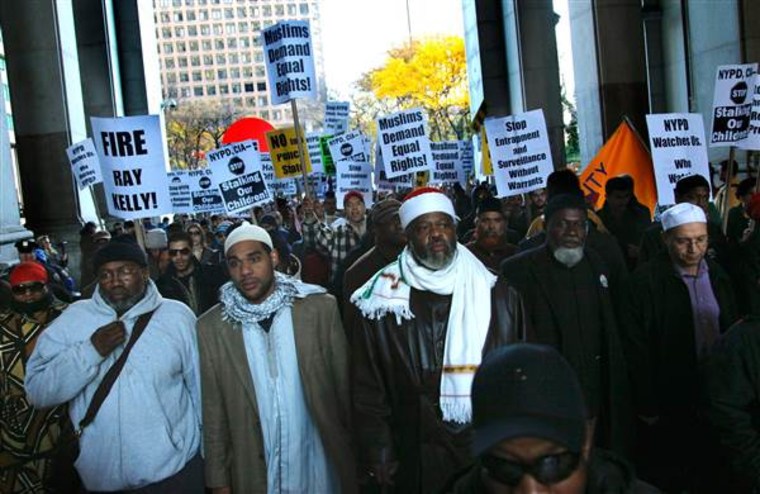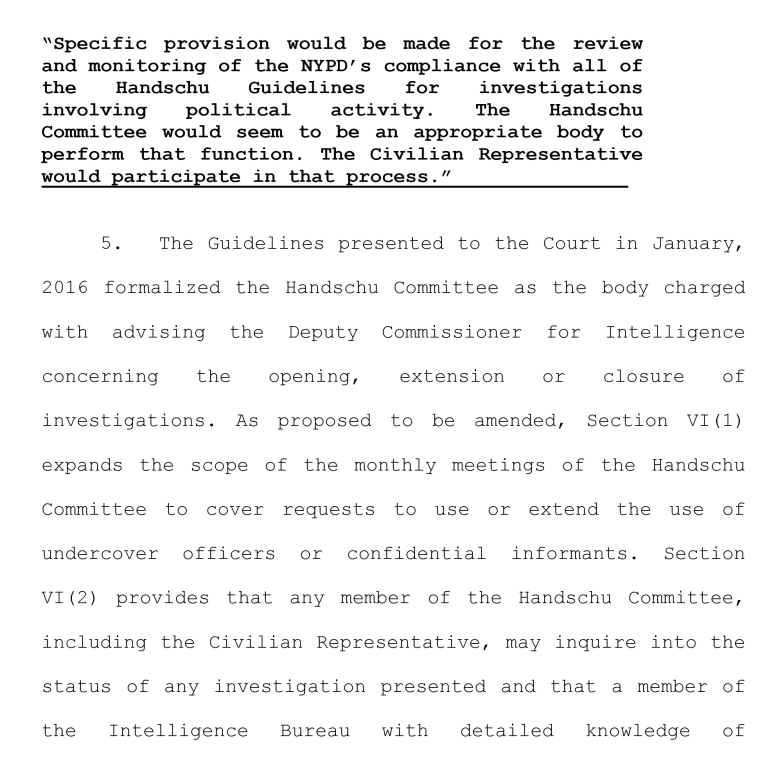A settlement has been reached for a second time in a federal lawsuit that accuses the New York Police Department (NYPD) of illegally surveilling Muslim Americans after the Sept. 11, 2001, terrorist attacks, according to court papers filed Monday.

The new agreement, if approved, gives additional powers to a civilian representative who would ensure safeguards are followed for NYPD investigations into political or religious activity. That appointee could communicate concerns to the court at any time, court documents said.
RELATED: New York City Settles Lawsuits Concerning Muslim Surveillance, Will Institute Reforms
Four months ago, U.S. District Judge Charles S. Haight, Jr. in Manhattan rejected a settlement reached last January that would’ve applied in two cases: Handschu v. Special Services Division and Raza v. City of New York.
“This revised agreement addresses the concerns raised by the court and strengthens the city’s efforts to identify terroristic threats without stereotyping an entire community based on religion.”
Haight, the judge in the Handschu class-action lawsuit, believed the proposed role and power of the civilian appointee did not go far enough.
“This revised agreement addresses the concerns raised by the court and strengthens the city’s efforts to identify terroristic threats without stereotyping an entire community based on religion,” New York City corporation counsel Zachary W. Carter told NBC News in a statement.
Lead plaintiff Imam Hamid Hassan Raza called the new settlement important progress for Muslim New Yorkers and minorities in the state and beyond.
“The new additions to the agreement cement the gains that we achieved before, securing our freedom to practice our religion without being afraid of who’s watching,” Raza said in a statement released Monday by the New York Civil Liberties Union (NYCLU), one of the groups involved in the Raza suit.
The changes to the settlement require that the civilian representative report to the court annually and also if systematic violations have occurred, court papers said. It additionally allows the appointee to review the use of undercover officers and confidential informants and how investigations are conducted, not just started or extended.
The mayor would also need judicial approval before eliminating the civilian representative position after the initial five-year period, according to the agreement. A court could grant that request only if the city has been free of systematic violations for three years.
Following the Sept. 11 terrorist attacks, the city moved to relax restrictions and oversight in what are known as the Handschu guidelines. Named after plaintiff Barbara Handschu, an attorney and social activist, the guidelines date back to 1985 when rules were established on how intelligence can be collected during activities, including political and religious ones, protected by the First Amendment.

The court granted the city’s request in 2003. Haight was the judge in that case, according to the Associated Press, as well as the one who signed off on the guidelines in 1985.
In Handschu v. Special Services Division, the NYPD is accused of violating a long-standing consent decree in investigating Muslims. The department is also accused of violating the state and U.S. constitutions in Raza v. City of New York by "singling out and stigmatizing entire communities of New Yorkers based on their religion,” according to the American Civil Liberties Union.
The NYPD disbanded a unit in 2014 that spied on Muslims following the Sept. 11 terrorist attacks.
Haight and the judge in the Raza suit would both have to sign off on the revised settlement for it to take effect, according to the NYCLU.
Follow NBC Asian America on Facebook, Twitter, Instagram and Tumblr.